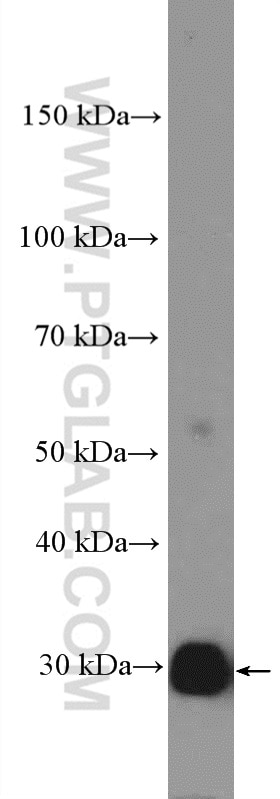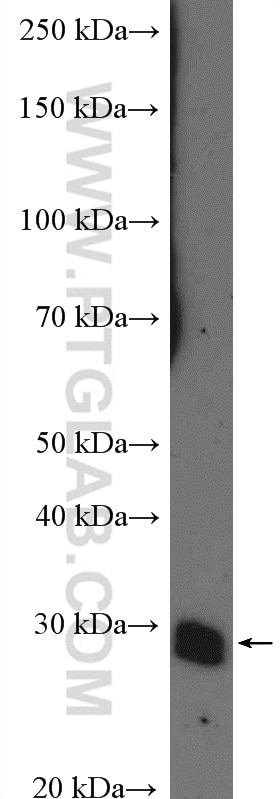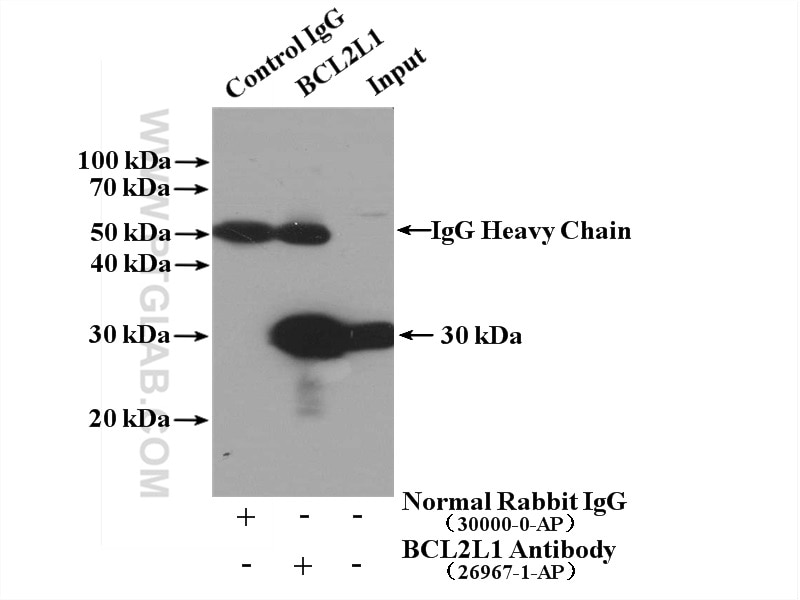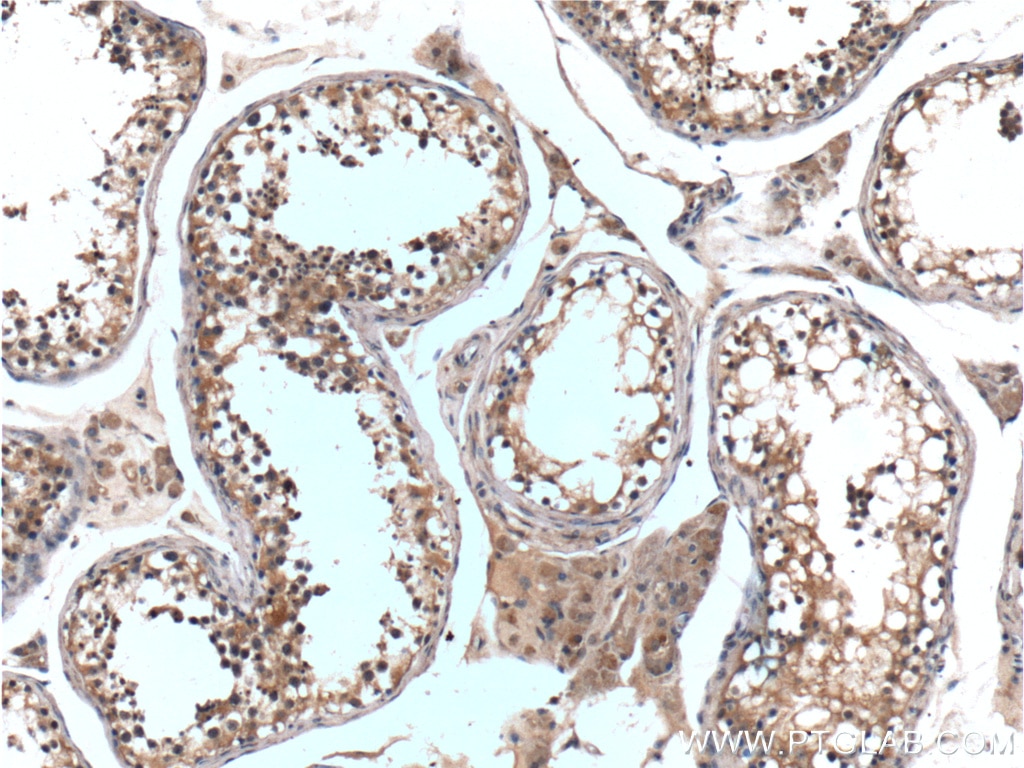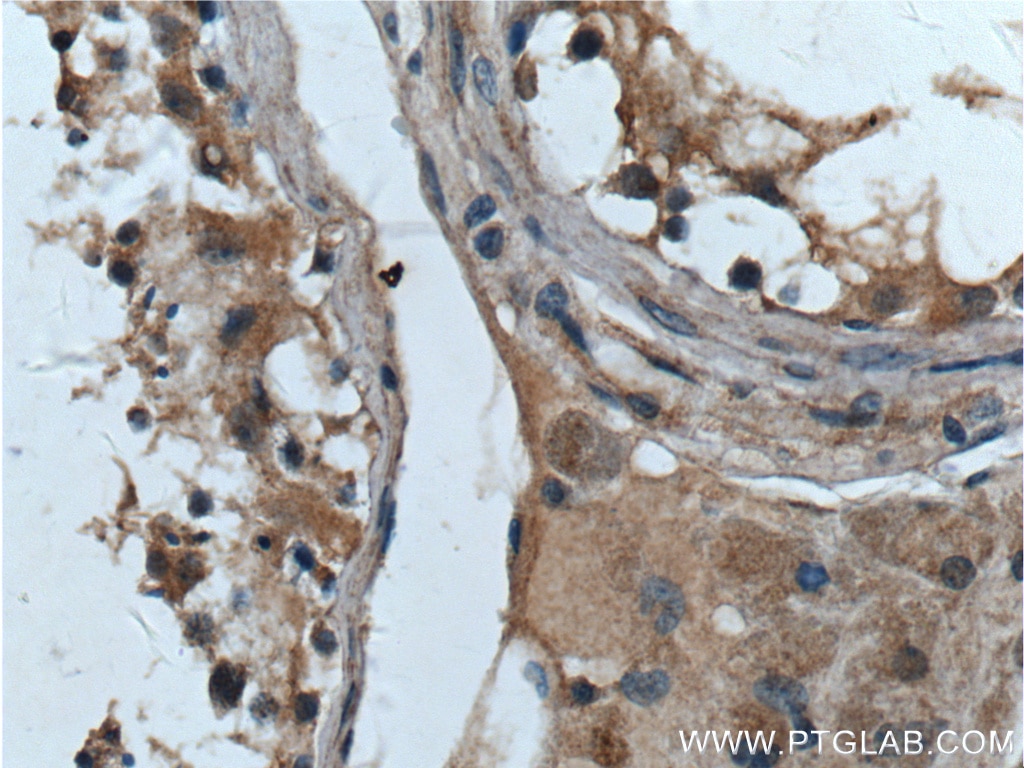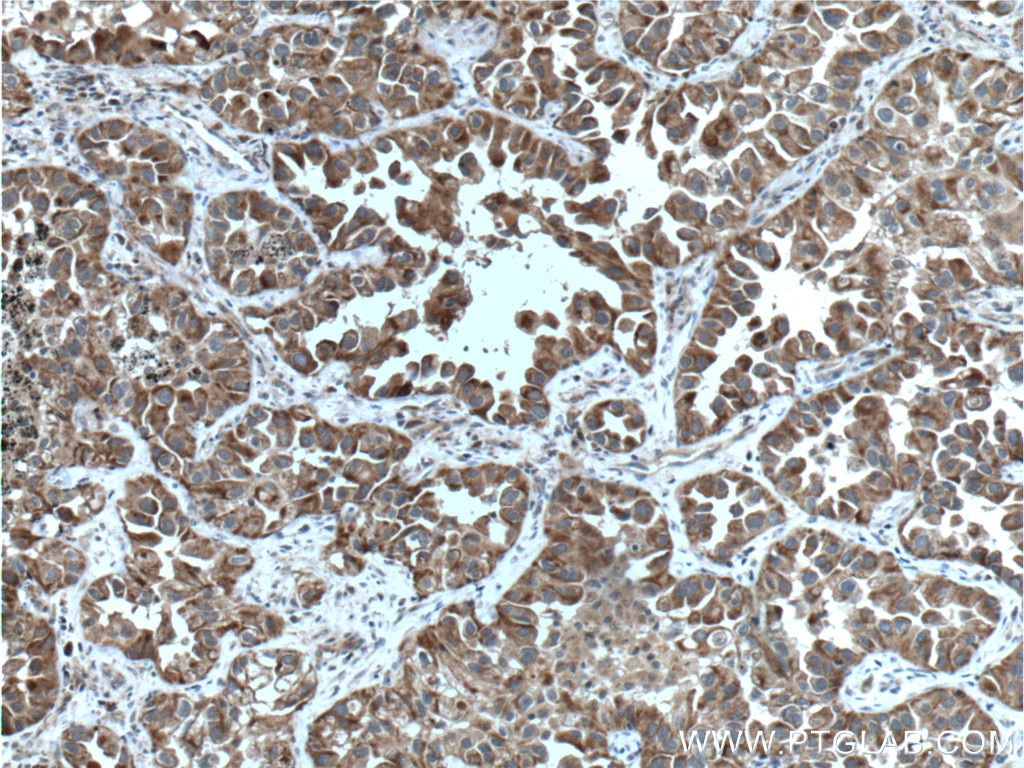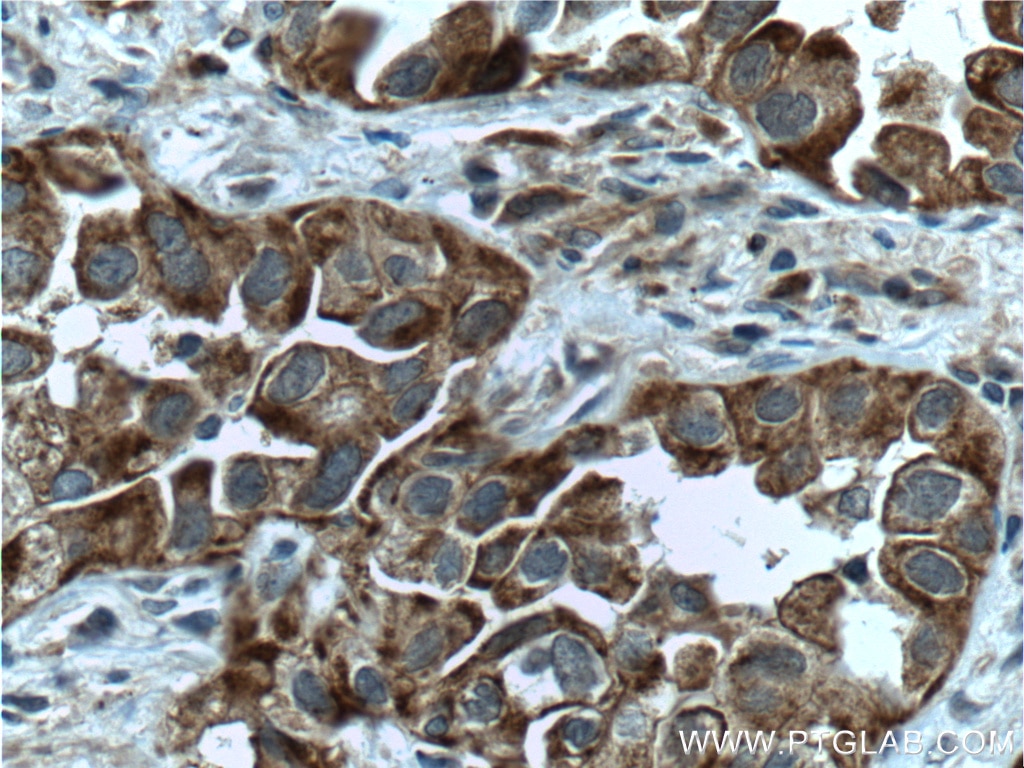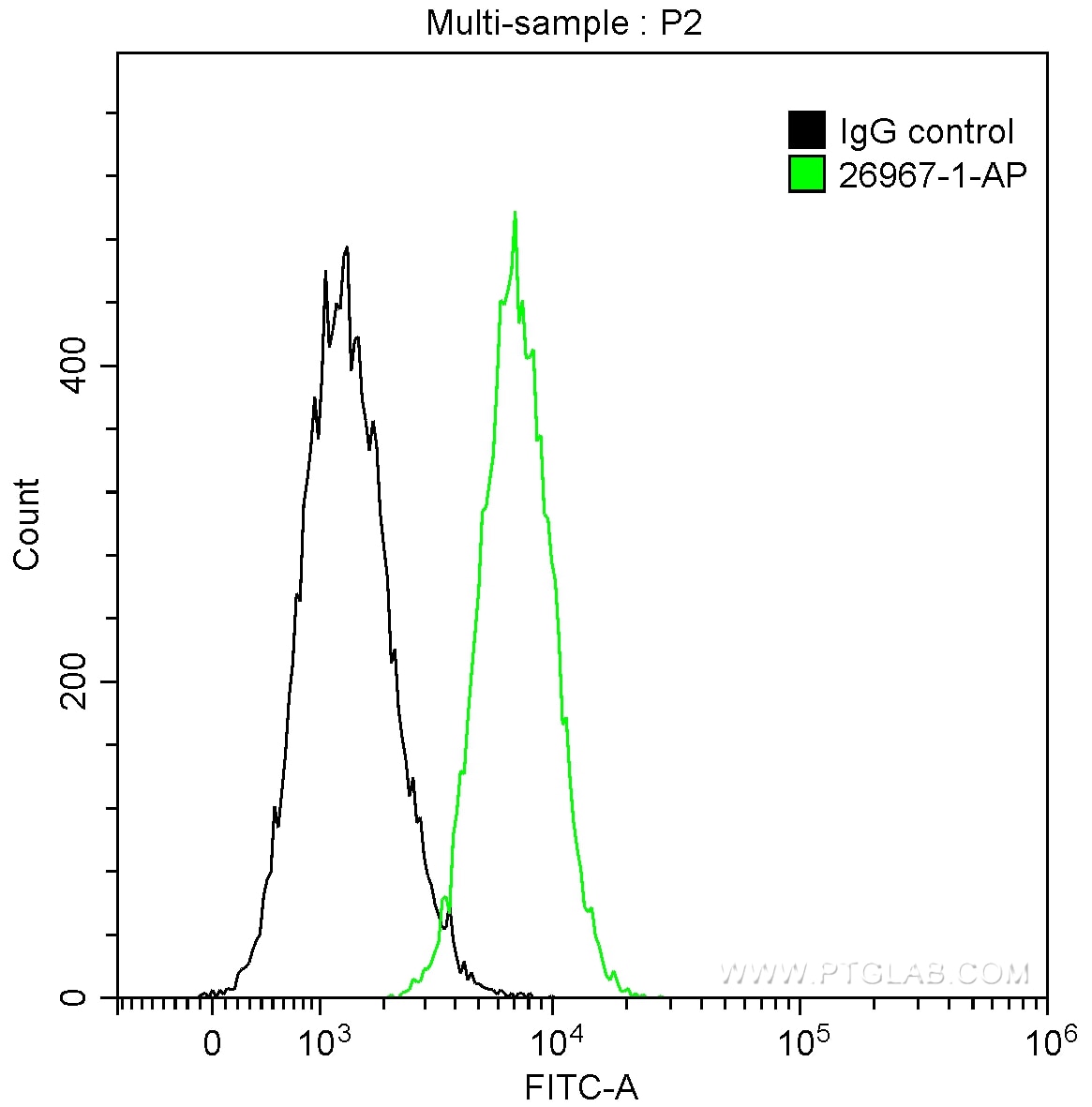Bcl-XL Polyklonaler Antikörper
Bcl-XL Polyklonal Antikörper für FC, IHC, IP, WB, ELISA
Wirt / Isotyp
Kaninchen / IgG
Getestete Reaktivität
human, Maus und mehr (2)
Anwendung
WB, IP, IHC, IF, FC, ELISA
Konjugation
Unkonjugiert
Kat-Nr. : 26967-1-AP
Synonyme
Galerie der Validierungsdaten
Geprüfte Anwendungen
| Erfolgreiche Detektion in WB | NIH/3T3-Zellen, RAW 264.7-Zellen |
| Erfolgreiche IP | NIH/3T3-Zellen |
| Erfolgreiche Detektion in IHC | humanes Hodengewebe, humanes Lungenkarzinomgewebe Hinweis: Antigendemaskierung mit TE-Puffer pH 9,0 empfohlen. (*) Wahlweise kann die Antigendemaskierung auch mit Citratpuffer pH 6,0 erfolgen. |
| Erfolgreiche Detektion in FC | Jurkat-Zellen |
Empfohlene Verdünnung
| Anwendung | Verdünnung |
|---|---|
| Western Blot (WB) | WB : 1:500-1:2000 |
| Immunpräzipitation (IP) | IP : 0.5-4.0 ug for 1.0-3.0 mg of total protein lysate |
| Immunhistochemie (IHC) | IHC : 1:50-1:500 |
| Durchflusszytometrie (FC) | FC : 0.20 ug per 10^6 cells in a 100 µl suspension |
| It is recommended that this reagent should be titrated in each testing system to obtain optimal results. | |
| Sample-dependent, check data in validation data gallery | |
Veröffentlichte Anwendungen
| WB | See 65 publications below |
| IHC | See 5 publications below |
| IF | See 1 publications below |
Produktinformation
26967-1-AP bindet in WB, IP, IHC, IF, FC, ELISA Bcl-XL und zeigt Reaktivität mit human, Maus
| Getestete Reaktivität | human, Maus |
| In Publikationen genannte Reaktivität | human, Hund, Maus, Ratte |
| Wirt / Isotyp | Kaninchen / IgG |
| Klonalität | Polyklonal |
| Typ | Antikörper |
| Immunogen | Bcl-XL fusion protein Ag25604 |
| Vollständiger Name | BCL2-like 1 |
| Berechnetes Molekulargewicht | 26 kDa |
| Beobachtetes Molekulargewicht | 30 kDa |
| GenBank-Zugangsnummer | BC019307 |
| Gene symbol | BCL2L1 |
| Gene ID (NCBI) | 598 |
| Konjugation | Unkonjugiert |
| Form | Liquid |
| Reinigungsmethode | Antigen-Affinitätsreinigung |
| Lagerungspuffer | PBS mit 0.02% Natriumazid und 50% Glycerin pH 7.3. |
| Lagerungsbedingungen | Bei -20°C lagern. Nach dem Versand ein Jahr lang stabil Aliquotieren ist bei -20oC Lagerung nicht notwendig. 20ul Größen enthalten 0,1% BSA. |
Hintergrundinformationen
BCL2L1 is a member of the BCL-2 protein family. BCL2L1 is expressed as three isoforms, Bcl-X(L),Bcl-X(s) and Bcl-X(beta), and is located at the outer mitochondrial membrane. The Bcl-XL isoform is a 233 amino acid protein, acting as an apoptotic inhibitor. Bcl-XL can forms heterodimers with BAX, BAK or BCL2, and the heterodimerization with BAX does not seem to be required for anti-apoptotic activity. The Bcl-XS isoform is a shorter variant that is 178 amino acids in length and lacks a 63 amino acid region (amino acids 126-188), acting as an apoptotic activator. This antibody can recognize Bcl-XL, Bcl-XS and Bcl-X(Beta).
Protokolle
| Produktspezifische Protokolle | |
|---|---|
| WB protocol for Bcl-XL antibody 26967-1-AP | Protokoll herunterladen |
| IHC protocol for Bcl-XL antibody 26967-1-AP | Protokoll herunterladen |
| IP protocol for Bcl-XL antibody 26967-1-AP | Protokoll herunterladen |
| FC protocol for Bcl-XL antibody 26967-1-AP | Protokoll herunterladen |
| Standard-Protokolle | |
|---|---|
| Klicken Sie hier, um unsere Standardprotokolle anzuzeigen |
Publikationen
| Species | Application | Title |
|---|---|---|
Microbiome The microbiota-gut-brain axis participates in chronic cerebral hypoperfusion by disrupting the metabolism of short-chain fatty acids. | ||
Clin Cancer Res Long noncoding RNA LINC01234 functions as a competing endogenous RNA to regulate CBFB expression by sponging miR-204-5p in gastric cancer. | ||
Clin Cancer Res Inhibition of Bcl-2 Synergistically Enhances the Antileukemic Activity of Midostaurin and Gilteritinib in Preclinical Models of FLT3-mutated Acute Myeloid Leukemia. | ||
Cell Rep Developmental potency of human ES cell-derived mesenchymal stem cells revealed in mouse embryos following blastocyst injection | ||
Int J Biol Macromol CircDYM attenuates microglial apoptosis via CEBPB/ZC3H4 axis in LPS-induced mouse model of depression | ||
Cancer Lett Esculetin inhibits endometrial cancer proliferation and promotes apoptosis via hnRNPA1 to downregulate BCLXL and XIAP. |
